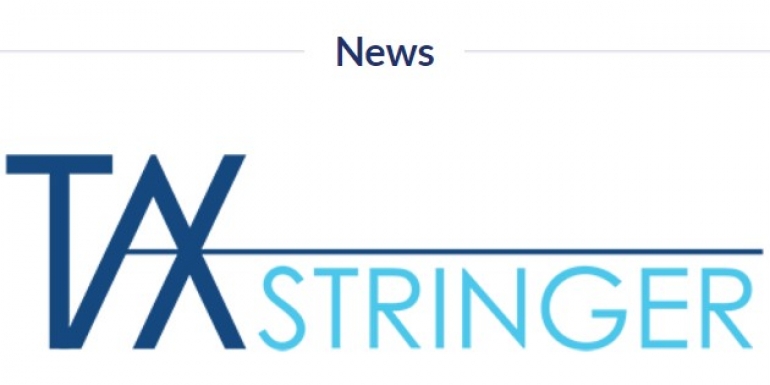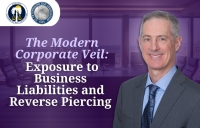The protections offered by a variety of states and countries must be implemented before legal issues arise. Planning does not involve hiding exposed assets or engaging in reactionary transfers. Transfers, re-titling, etc. intended to avoid a creditor may be reversed under the applicable “fraudulent transfer” law and may entwine unintended parties (e.g., recipients, professional advisors).
This is the first of a series of articles intended to introduce CPAs to asset protection and international tax law. The series on asset protection will cover an array of topics, including the following:
Assets Exempt from Collection
Certain assets are legally exempt from collection. No protective LLC or trust is necessary to insulate such assets from creditors. Depending on the state or country, protected assets may include the home, farm, life insurance, annuities and retirement accounts.
The protections vary. For example, 47 states offer some protection of the homestead; only 6 offer unlimited protection, and only residents of Florida may retain home equity funded in violation of the applicable fraudulent transfer act. Without an unlimited homestead exemption, the home may be foreclosed, leaving the owner/debtor with only the exempt sale proceeds. In the asset protection series, we explain some of the salient classes of exempt assets and how to strategically utilize creditor exemptions.
LLCs
Limited liability companies (LLCs) have developed as the preferred business entity for an array of business and protective planning; the first American LLC statute was adopted by Wyoming in 1977. Although all 50 states and several foreign jurisdictions have passed LLC organizational statutes, the level of protection varies dramatically from state to state, and country to country. The corporation has waned in popularity due to the exposure of corporate stock to creditors. Although corporations insulate shareholders from operational liabilities (known as “inside” liabilities), a shareholder must generally surrender corporate stock to a judgment holder. The judgment holder becomes a shareholder, with all shareholder voting and liquidation rights.
LLLs insulate owners from business liabilities, similar to corporations. However, unlike corporate stock—available to creditors of a shareholder—equity held in a protective LLC cannot generally be reached. An “outside” creditor (of an LLC member) cannot generally acquire a voting interest, equity or assets inside a properly organized LLC. Claims to protected LLC equity are limited to a charging lien on distributions.
This “charging order” limitation—protecting the LLC membership interest—emanated from partnership law. The creditor lien permits access only to distributions paid on “charged” LLC equity. The charging lien entitles the creditor only to company distributions, if any, payable to the debtor/member, but not to any management or other authority. The holder of a charging order has only an economic interest—to distributions—and cannot attach equity, force LLC distributions or vote on any company matter. The charging order limitation is what creates “outside asset protection,” as the outside creditor of an owner cannot get “in” to the assets of the LLC. This outside limitation, if properly implemented, generally prevents involuntary equity transfers.
LLCs thus insulate owners—i.e., members—from both (i) company “inside” operational liabilities (similar to corporations) and (ii) offer a second “outside” protection of LLC equity (not offered by corporations). The strength of a state’s LLC statute determines the degree of outside protection. The protection makes corporations generally archaic and avoids the need for partnerships, which offer the charging lien limitation but expose general partners to business obligations.
Interestingly, protective titling may allow for avoidance of the charging lien on LLC equity. The charging order may be avoided in states permitting ownership of LLCs by husband and wife (tenants by the entirety). If properly titled, the creditor of a single spouse may not lien equity held by the entireties. Unmarried clients obviously cannot utilize marital titling—by the entireties—to protect LLC equity from the charging lien. The single client may, alternatively, contribute LLC equity to either (i) a domestic trust formed in a state permitting the protection of assets, for the benefit of the grantor, or (ii) a trust formed in a foreign jurisdiction with highly protective trust laws. We will detail how best to utilize LLCs in asset protection planning in the upcoming series. Topics will include how best to protect single-member LLC equity and court rulings on the application of different LLC laws.
Trusts
Trusts are the oldest form of asset protection. Unlike business entities, controlled by the founder, title to trust assets is divided between the trustee and the beneficiaries; a “settlor” forms and funds the trusts. Trust assets are managed by a trustee who holds legal title to the trust assets. The trustee makes distributions to beneficiaries named in the terms of the trust. The beneficiary of a “spendthrift” trust, with beneficial title to trust assets, has no right to reach, control or encumber trust assets.
Creditors of a beneficiary may reach only trust assets available to the debtor beneficiary. The most protective trusts vest the trustee, holding legal title to trust assets, with absolute discretion over trust distributions. Only distributions mandated by the trust or made at the trustee’s discretion may be attached by a creditor of a beneficiary. A trustee empowered with discretion over distributions will generally withhold payments to a beneficiary subject to a collection claim; trust assets are thus insulated from beneficiary liabilities. Despite the ethical questions raised by protecting potentially imprudent “trust fund babies,” each U.S. state has codified the arrangement.
Note that protective trusts are irrevocable. Revocable trusts generally provide no asset protection because trust assets benefit the settlor and trust terms may be amended. Title to revocable trust assets is not divided between trustee and beneficiary. Such self-settled trusts may be used to avoid probate—but trust assets generally remain available to the founder’s creditors.
Until recently, settlors seeking trust protections were forced to use foreign trusts. Several common law jurisdictions offer trust legislation permitting a grantor to benefit from assets in a protective trust. In subsequent articles, we will explain how these protective asset protection trusts may be effectively utilized abroad, and how 18 U.S. states now offer domestic asset protection trusts. The next article will introduce our series on international taxation.
Gary Forster is managing partner and co-founder of Forster Boughman, a tax and corporate law boutique in greater Orlando, Florida. Gary’s practice includes domestic and international corporate law, asset protection, tax and estate planning.
Views expressed in articles published in Tax Stringer are the authors' only and are not to be attributed to the publication, its editors, the NYSSCPA or FAE, or their directors, officers, or employees, unless expressly so stated. Articles contain information believed by the authors to be accurate, but the publisher, editors and authors are not engaged in rendering legal, accounting or other professional services. If specific professional advice or assistance is required, the services of a competent professional should be sought.

Gary A. Forster
Gary Forster is the managing partner and co-founder of ForsterBoughman. His practice includes domestic and international corporate law, asset protection, tax, and estate planning. Gary handles a wide variety of corporate and personal planning matters. Gary is the author of two books. In 2013, he wrote Asset Protection for Professionals, Entrepreneurs and Investors, a guide to asset protection strategies for clients and their financial advisors, now in its second edition. In 2020, he finished the second edition of The U.S. Estate and Gift Tax and the Non-Citizen, which explains how resident and non-resident foreign nationals are impacted by the U.S. Estate and Gift Tax. Gary writes and lectures nationally to state bar and CPA groups on the topics of asset protection, international tax and corporate law. He has also instructed classes at the University of Florida (Levin College of Law) and Rollins College (Crummer Graduate School of Business). Gary’s articles can be found in such publications as the Florida Bar Journal and the American Bar Association’s Probate and Property Magazine. Gary earned a B.A. from Tufts University, graduating cum laude with majors in Economics and Spanish Literature. He received his J.D. from the University of Florida College of Law, graduating with honors. Gary continued his studies as a graduate fellow at the University of Florida College of Law, Masters of Taxation program, earning an LL.M. His education also includes studies at the University of Madrid, Oxford University and Leiden University in the Netherlands. Gary is rated AV-Preeminent by Martindale-Hubbell and speaks Spanish fluently.



 Article Written for:
Article Written for: 
